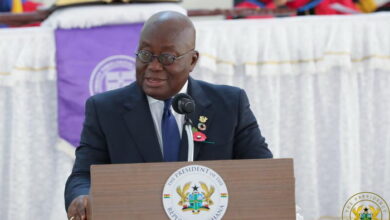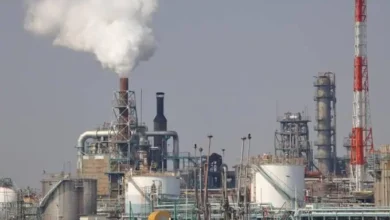Quality Infrastructure Drives Economic Growth and Job Creation – Dr. Maxwell Opoku-Afari
Quality Infrastructure Drives Economic Growth and Job Creation – Dr. Maxwell Opoku-Afari

- He emphasized that well-constructed environments can stimulate local economic growth
- According to Dr. Opoku-Afari, maintaining quality-built environments attracts businesses
- He further stressed that buildings communicate the values, beliefs, and aspirations of their creators
Dr. Maxwell Opoku-Afari, First Deputy Governor of the Bank of Ghana, has highlighted the significant role quality infrastructure plays in creating employment opportunities, particularly in the construction sector.
He emphasized that well-constructed environments can stimulate local economic growth, primarily through a culture of regular maintenance.
According to Dr. Opoku-Afari, maintaining quality-built environments attracts businesses, tourists, and investors, which in turn boosts the economy. Additionally, these investments provide property owners with opportunities for refinancing, creating derivative markets, and supporting other critical investments.
Speaking at the 2024 Annual General Meeting of the Ghana Institute of Architects, Dr. Opoku-Afari outlined several economic benefits of a well-designed built environment, such as increased property values, enhanced productivity, economic growth, and reduced maintenance costs.
However, he raised concerns about the challenges property owners face in Ghana, noting that once funds are invested in property, it becomes difficult to leverage its appreciating value for further financial growth. “While this is not solely the responsibility of architects and builders, it also calls for creativity within the finance sector,” he explained. “I firmly believe that enhancing our built environment will unlock significant economic benefits.”
Dr. Opoku-Afari also touched on the issue of domestic revenue mobilisation, which many developing economies, including Ghana, struggle with. He suggested that a well-planned built environment, backed by accurate cadastral records, could help the government formalize property values and collect essential property taxes.
In contrast to advanced and emerging economies, which often have tax-to-GDP ratios exceeding 30%, many developing nations, especially low-income countries like Ghana, have ratios under 15%, with property taxes largely absent. Ghana’s tax-to-GDP ratio hovers around 13%.
Bank Square: A Symbol of Strength and Permanence
Dr. Opoku-Afari also discussed the new Bank of Ghana head office, known as Bank Square, describing it as a bold symbol of the institution’s enduring presence and authority in the financial sector. The building’s durable stone structure signifies permanence and resilience, similar to ancient monuments that have withstood the test of time.
“The choice of materials not only reflects the stature of the Bank but also requires minimal maintenance, supporting the building’s sustainability goals,” he said. “This design mirrors the Bank’s regulatory role and reinforces its significance within the national economic framework.”
He further stressed that buildings communicate the values, beliefs, and aspirations of their creators. “Let us design buildings that speak for us, that reflect our ambitions, and bring in positive economic externalities,” he urged.
Embracing Technology for Economic Development
In his closing remarks, Dr. Opoku-Afari called on building professionals to consider how advancements in technology can be leveraged to design structures that reflect Ghana’s socio-cultural identity and contribute to its economic development. By integrating these innovations, he believes the construction industry can play a pivotal role in shaping the nation’s future.





